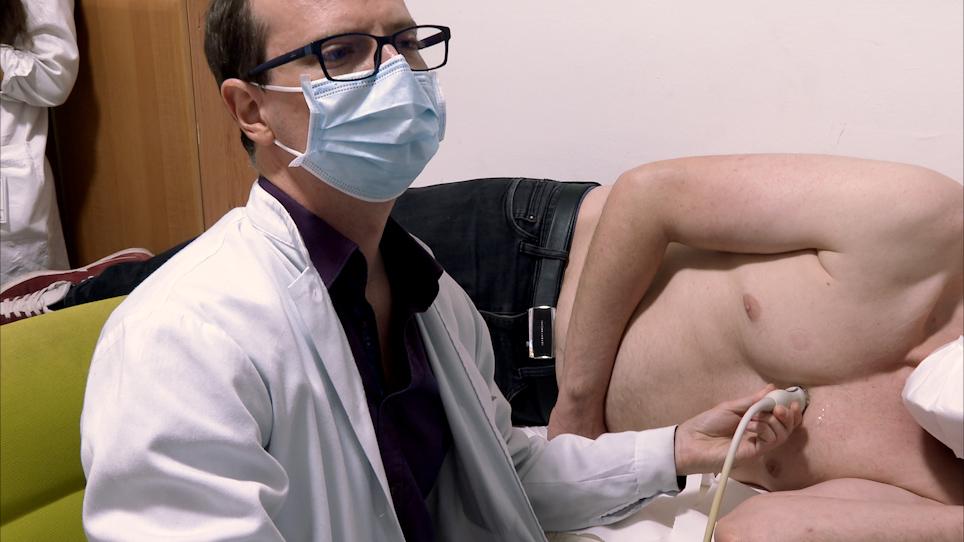Semmelweis University
16 ARTICLES PUBLISHED IN JoVE
Medicine
We demonstrate how to set up an in vitro ischemia/reperfusion model and how to evaluate the effect of stem cell therapy on postischemic cardiac cells.
Cancer Research
Selectively labeled fluorescent GnRH-I, -II and -III derivatives are reliable tools for tracking and quantifying their cellular uptake. This manuscript introduces experiments to visualize, quantify and compare the uptake efficiency of these GnRH conjugates in various cell lines.
Biology
This manuscript describes a straightforward protocol for the isolation of arterioles from the rat retina that can be used in electrophysiological, calcium imaging and pressure myography studies.
Medicine
This study introduces a protocol for measuring microcirculation in human oral mucosa by laser speckle contrast imaging. The monitoring of wound healing after vestibuloplasty combined with a xenogenic collagen graft is presented on a clinical case.
Medicine
Here, we describe the staining of blood vessels using latex milk injections. This procedure provides anatomical knowledge of the oral blood supply for detailed macroscopic vascular mapping of the oral mucosa, as well as understanding of proper flap design to prevent complications and promote postoperative wound healing.
Bioengineering
In this article, we provide a step-by-step acquisition and analysis protocol for the volumetric assessment and speckle-tracking analysis of the left ventricle by 3D echocardiography, particularly focusing on practical aspects that maximize the feasibility of this technique.
Medicine
Here, we provide a step-by-step acquisition and analysis protocol for the 3D volumetric assessment of the right ventricle, mainly focusing on the practical aspects that maximize the feasibility of this technique.
Medicine
Transthoracic (TTE) and transesophageal (TEE) echocardiography represent the basic imaging tools for interatrial septum examination. Three dimensional (3D) TEE provides incremental information in the assessment of the interatrial septum. Further advanced echocardiography techniques using speckle tracking echocardiography are applied for sensitive volumetric and functional assessment of the heart chambers.
Propylene carbonate has been shown to be a prominent green solvent in Suzuki cross-coupling reactions. Furthermore, the microwave reactor is demonstrated to afford enhanced reaction yields with decreasing reaction times. Using either a microwave reactor or conventional heating, propylene carbonate is sustainable for the cross-coupling reaction.
Medicine
The overall goal of the current study is to present the techniques of induction of myocardial infarction (MI) and post-myocardial infarction heart failure (post-MI HF) in closed-chest, adult Göttingen minipigs and the characterization of post-MI HF model in Göttingen minipigs as compared to Landrace pigs.
Medicine
Dynamic computed tomography angiography (CTA) imaging provides additional diagnostic value in characterizing aortic endoleaks. This protocol describes a qualitative and quantitative approach using time-attenuation curve analysis to characterize endoleaks. The technique of integrating dynamic CTA imaging with fluoroscopy using 2D-3D image fusion is illustrated for better image guidance during treatment.
Medicine
Dynamic computer-aided implant surgery (DCAIS) is a controlled implant surgical placement method performed without a surgical template using optical control. The real-time intraoperative control of movement and position of the surgical device simplifies the procedure and gives more freedom to the surgeon, providing similar precision as static navigation methods.
Neuroscience
Here, we describe a new, fast technique modeling open spinal cord injury in rats that eliminates laminectomy. Lateral hemisection is performed while viewing through a microscope. The technique is versatile and can also be used in the cervical, thoracic, and lumbar regions of the spinal cord of other animals.
3D Echocardiography: Toward a Better Understanding of Cardiac Anatomy and Function
Neuroscience
The Thyroid Hormone Action Indicator mouse model was developed to enable tissue-specific quantification of local thyroid hormone action using its endogenous regulatory machinery. Recently, it has been shown that the model is suitable for characterizing endocrine-disrupting chemicals interacting with thyroid hormone economy, both by ex vivo and in vivo methodologies.
Medicine
This article describes a methodology for the isolation, characterization, and quantification of human plasma-derived extracellular vesicles (EV) and presents a workflow for label-free analysis of the EV proteome using liquid chromatography-tandem mass spectrometry (LC-MS/MS).















